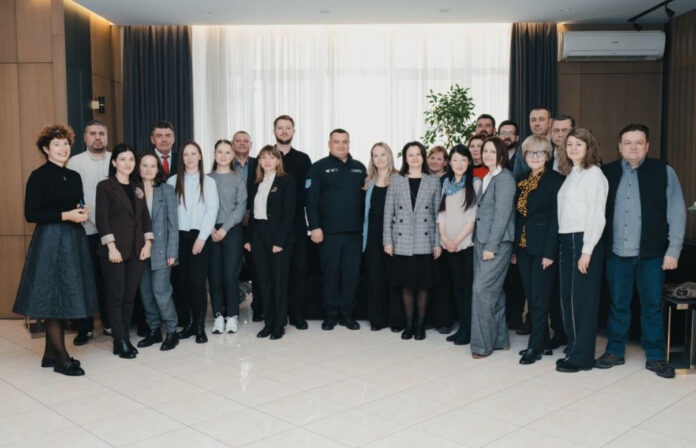Farmers in the Republic of Moldova are becoming more resilient and well prepared to cope with climate challenges, thanks to the support provided by the Government of Japan and UNDP Moldova. This was the main conclusion of the thematic workshop held on 21 October 2025, which brought together representatives of national authorities in the field of environment and agriculture, development partners, and experts in Chișinău.
Participants have discussed the extension of the national hydrometeorological monitoring network, implemented with the support of Japan and UNDP Moldova, within the project “Enhancing human security in Moldova through agri-food resilience to intensifying external and climate shocks”. Seven automatic mini-weather stations, 14 autonomous agro-meteorological monitoring stations, and five hydrological stations were installed and put into operation. The automatic data collection systems now provide more detailed information, increasing the accuracy of forecasts and early warning capabilities for drought, floods, and frost.
“Today’s workshop is focused specifically on data use in agriculture. Japan has been cooperating with Moldova in the field of agriculture for many years. Moldova’s agriculture has a huge potential seeing that you are step ahead in your path to EU membership. I hope this workshop will support Moldovan farmers to achieve their full potential,” said Mariko Mori, First Secretary of the Embassy of Japan in the Republic of Moldova.
“The continuous support of the Government of Japan is helping to gradually strengthen the national climate services system, providing farmers and authorities with more precise information and modern decision-making tools. UNDP Moldova will continue to support the development of these services so that the Republic of Moldova becomes more prepared and resilient in the face of increasingly severe climate risks,” said Silvia Pana-Carp, Programme Specialist, UNDP Moldova.
At the same time, UNDP and Japan supported the strengthening of local public authorities’ capacities to plan, budget, and access financing for climate change adaptation and disaster risk reduction. As a result, local plans for climate change adaptation and disaster risk reduction were developed for seven district centers: Ungheni, Drochia, Sîngerei, Comrat, Hîncești, Leova, and Cantemir. The process included extensive consultations with NGOs and the population, especially vulnerable groups.
The UNDP Moldova project “Enhancing human security in Moldova through agri-food resilience to intensifying external and climate shocks” was implemented between 2024 and 2025, in partnership with the State Hydrometeorological Service and with financial support from the Government of Japan.


